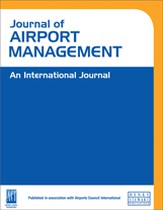Building synergies between the electronic passport and passenger data: Where will mobile identification technologies take us?
Abstract
The electronic passport is still underutilised in both border security and aviation processes. As a result, international passengers are often required to produce their passports for examination up to five times at the airport before boarding. This is not only time-consuming but also inefficient because most processes treat the passenger as an unknown entity. Travel document identification technology and passenger data are key tools to improve the passenger process in crowded airport hubs, which face operational constraints and diminishing public investments. To overcome space constraints and investment shortages, passport inspection and other identity assertion processes to support travel must be optimised to improve passenger flows for the benefit of both security and facilitation. This paper discusses the future of mobile travel document inspection based on the International Civil Aviation Organization (ICAO) standards at the airport border environment — a process that will be shaped by passenger data quality, biometric tools and the eventual deployment of the ICAO Digital Travel Credential (DTC). The advancement of facial recognition technology paired with airline passenger data, such as advance passenger information (API) and passenger name record (PNR), will assist identification technologies in the future to the point that the passenger can be identified at a walking pace.
The full article is available to subscribers to the journal.
Author's Biography
Christopher Hornek is an expert technical consultant with more than 15 years of experience in border control, travel document and identity management. He has worked for the International Civil Aviation Organization (ICAO), International Air Transport Association (IATA), Organization for Security and Co-operation in Europe (OSCE) and International Organization for Migration (IOM). Currently, he is ICAO’s Passenger Data Exchange Expert and Project Manager for developing a Doc 9303 Compliance Programme. At IATA, Christopher worked on promoting cooperation between States and airlines on a broad range of facilitation issues and was also the Secretary of the IATA/Control Authorities Working Group (CAWG). From 2003 to 2015, Christopher worked for the OSCE, where he led the organisation’s efforts to promote travel document security in OSCE participating States. He initiated the OSCE Ministerial Council decisions on the ICAO Public Key Directory (PKD) (MC.DEC/11/09) and advance passenger information (API) (MC.DEC/6/16). He served as the Project Co-ordinator of the OSCE mission in Turkmenistan and has extensive experience advising States around the world on travel document security issues. He is an active contributor to various expert groups, such as the ICAO Facilitation Panel, ICAO Technical Advisory Group (TAG)/Traveller Identification Programme (TRIP), as well as its New Technologies Working Group (NTWG). Furthermore, he regularly contributes to expert publications and is invited as a guest speaker at international fora. Christopher holds a bachelor of arts in modern European history from Santa Clara University (United States) and a master of international relations from the Diplomatic Academy/University of Vienna (Austria).
